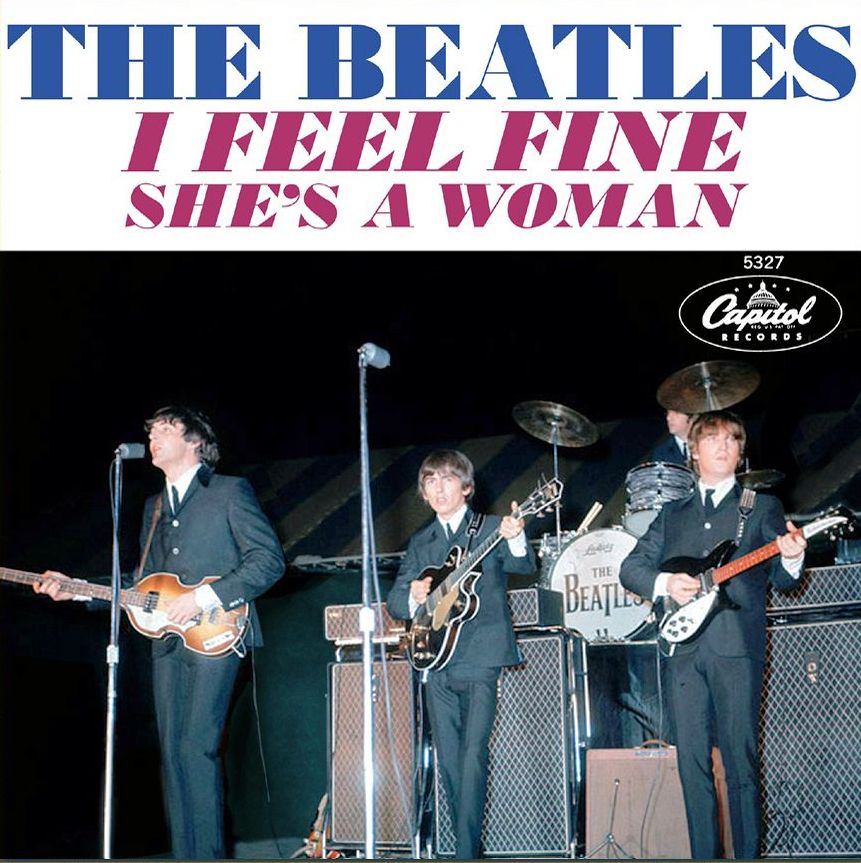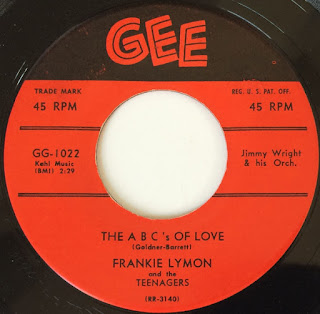 “I Feel Fine (US version)” (1964) – The Beatles * Written by John Lennon and Paul McCartney * 45: “I Feel Fine” / “She’s a Woman” * US LP: Beatles ’65 * Produced by George Martin * Label: Capitol
“I Feel Fine (US version)” (1964) – The Beatles * Written by John Lennon and Paul McCartney * 45: “I Feel Fine” / “She’s a Woman” * US LP: Beatles ’65 * Produced by George Martin * Label: CapitolEcstatic Beatlemania-era single that contains crucial reverb in the American Capitol Records versions, making it sound like it’s playing at a sock hop in a high school gym. Americans who listened to the British mixes on the first Beatles CDs were understandably disappointed when it sounded as though it were playing in a padded cell. The track appeared on the Beatles ’65 album, which also included reverb-blessed versions of “She’s a Woman” and “I’ll Be Back.” (Beatles VI had another: “Yes It Is.”) Also notable in “I Feel Fine” are its pioneering usage of feedback and an opening riff inspired by Bobby Parker’s 1961 single “Watch Your Step.” But the riff became its own template. All songs in the future with a mixolydian scale dancing over a I7 chord would be heard as petitions for “Beatle-esque” jocundity (The Monkees’ “Last Train to Clarksville,” The Bangles’ “Hero Takes a Fall,” the theme from Friends, etc.).









